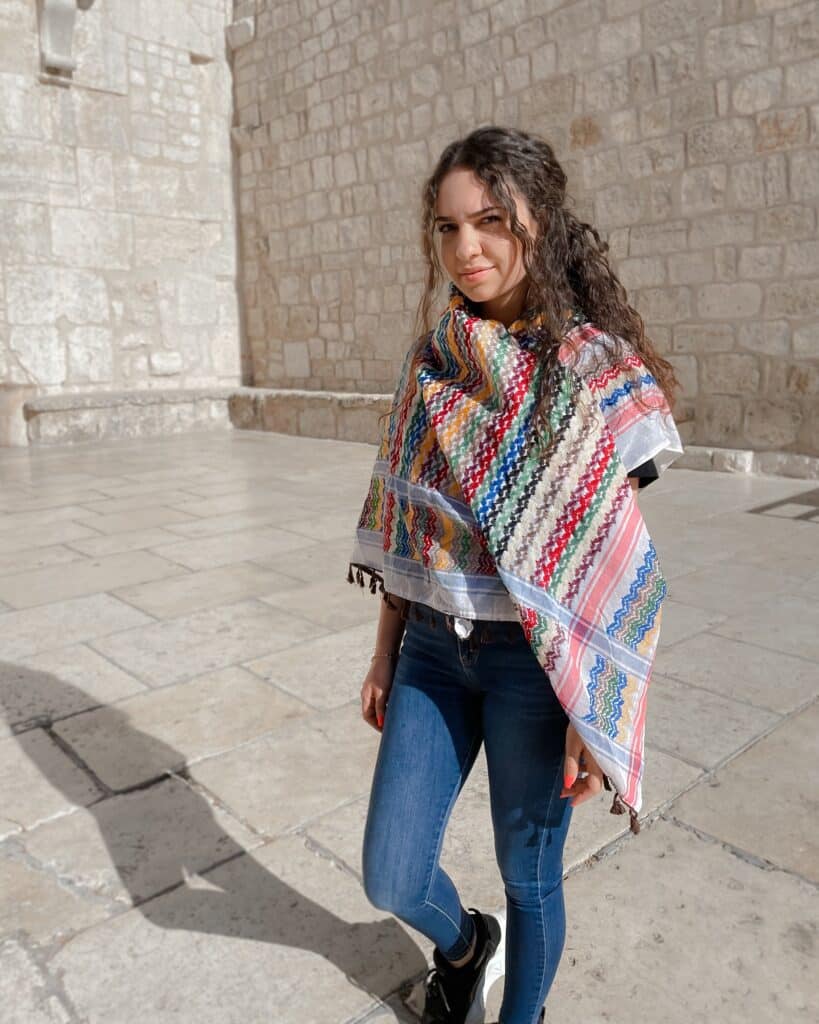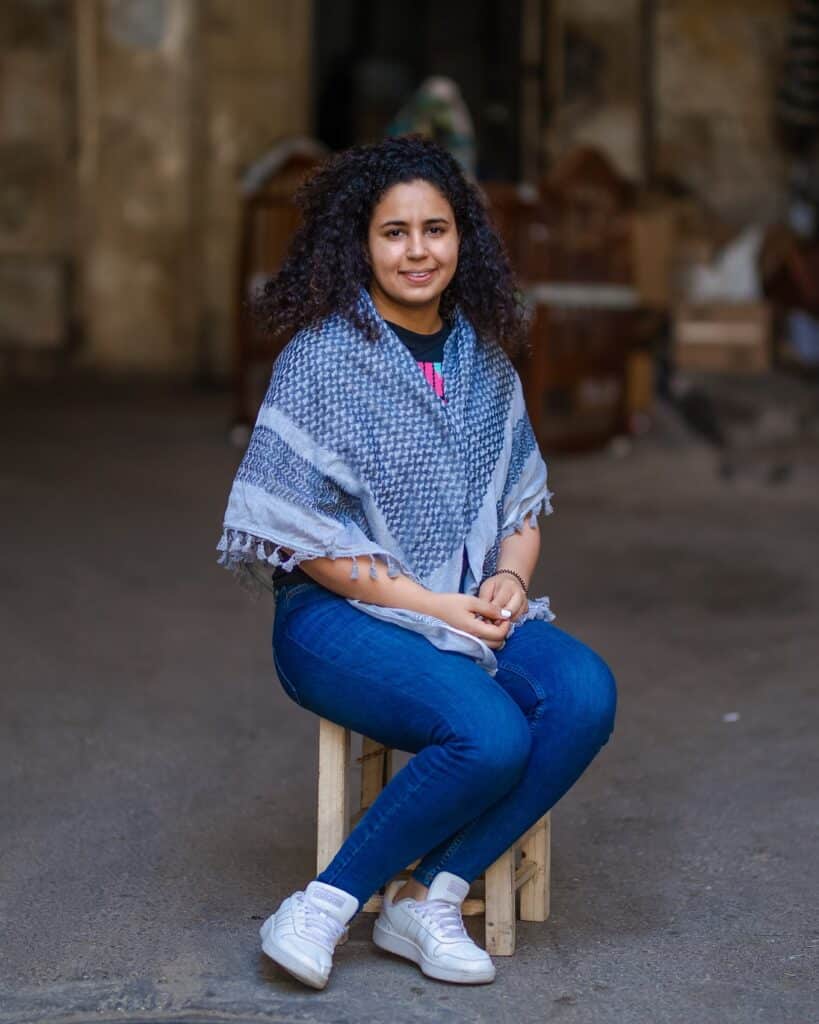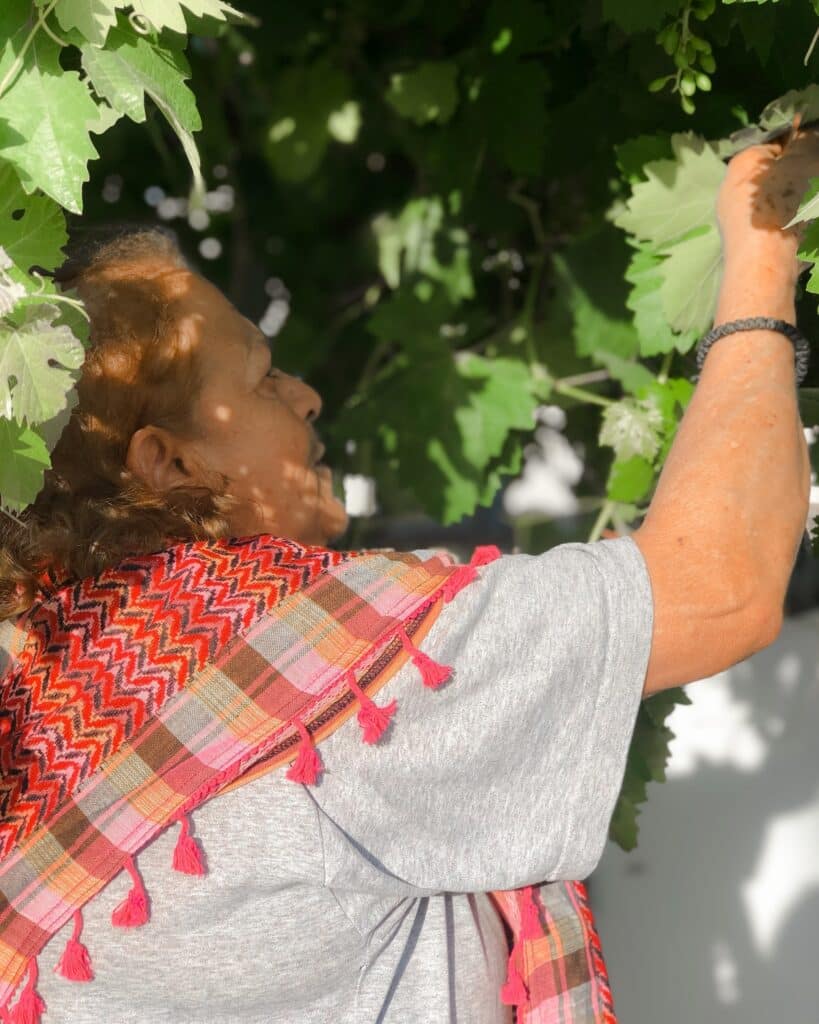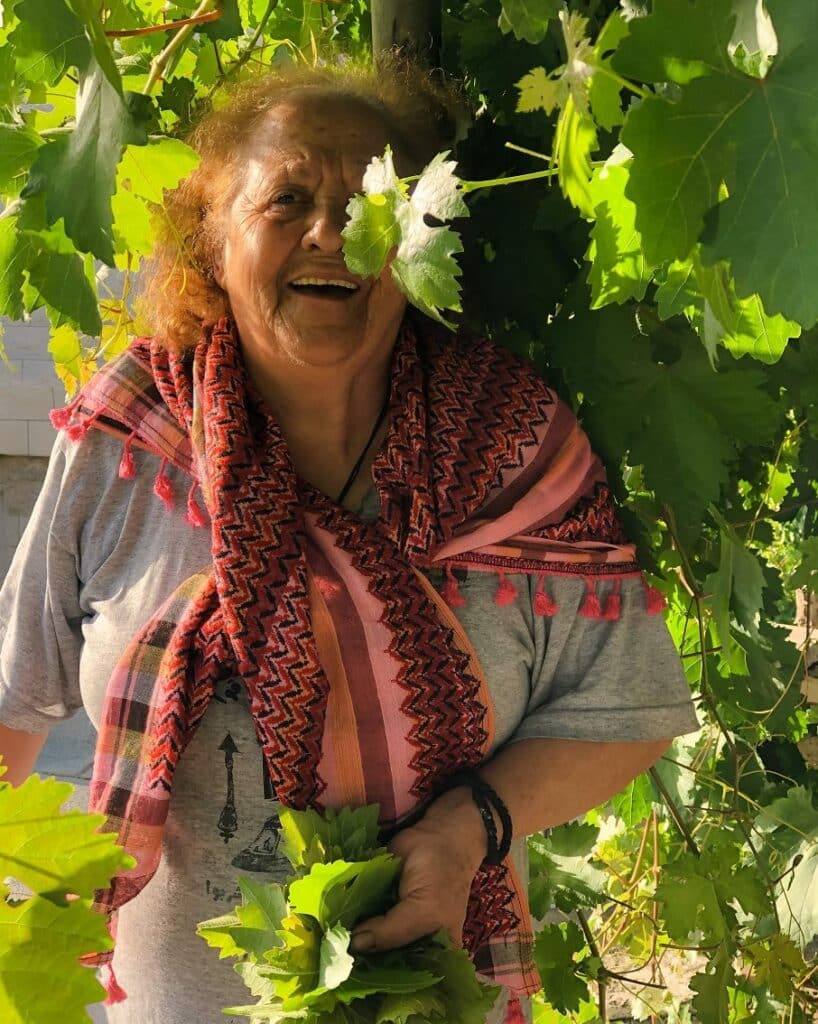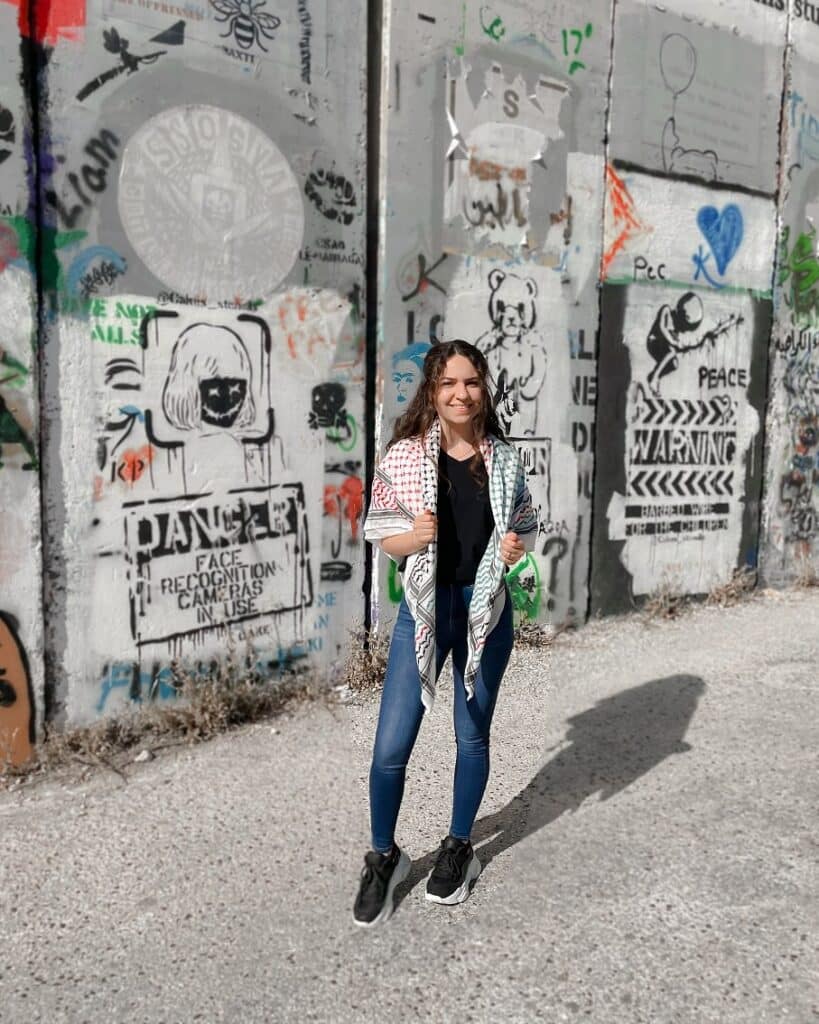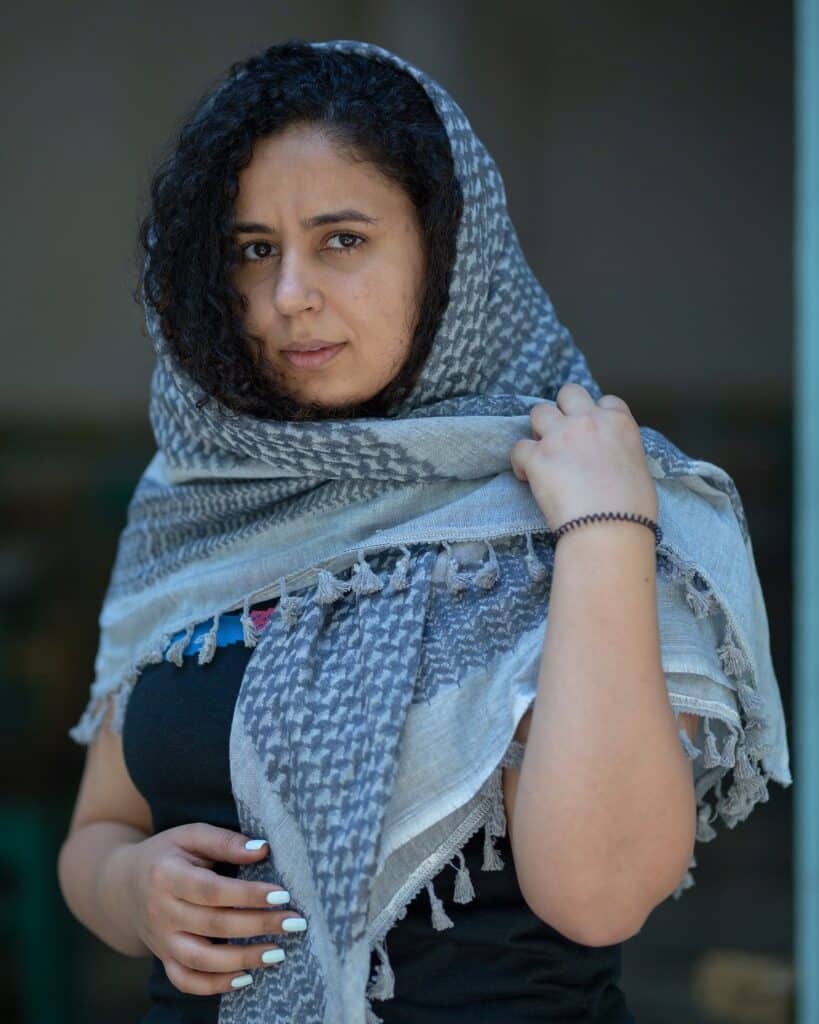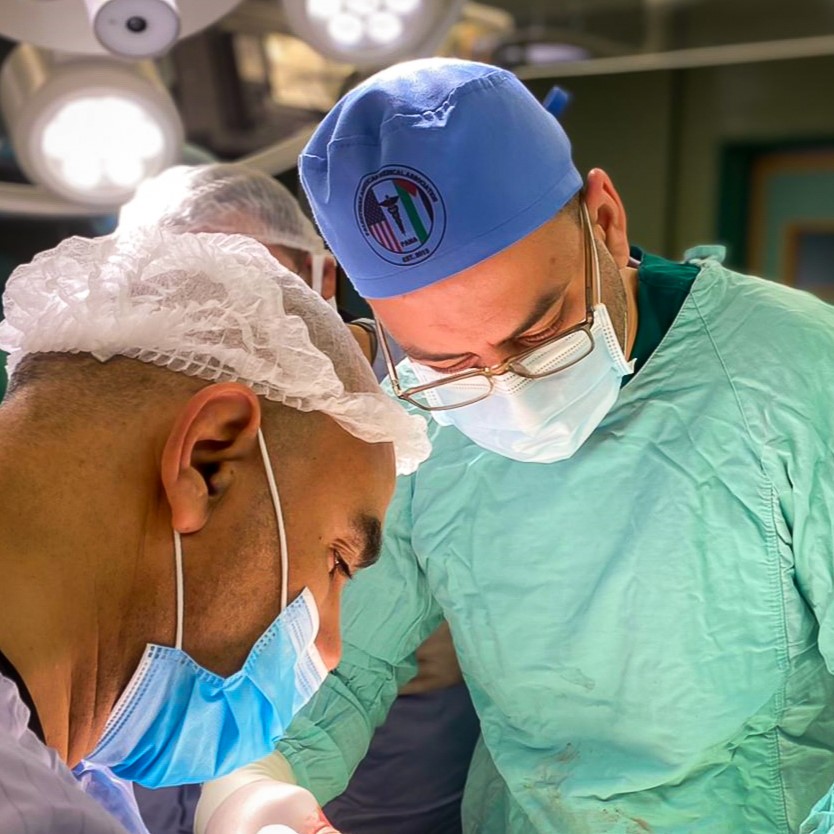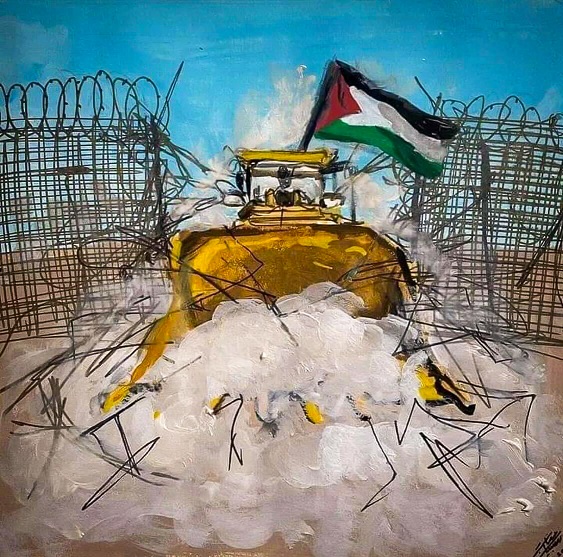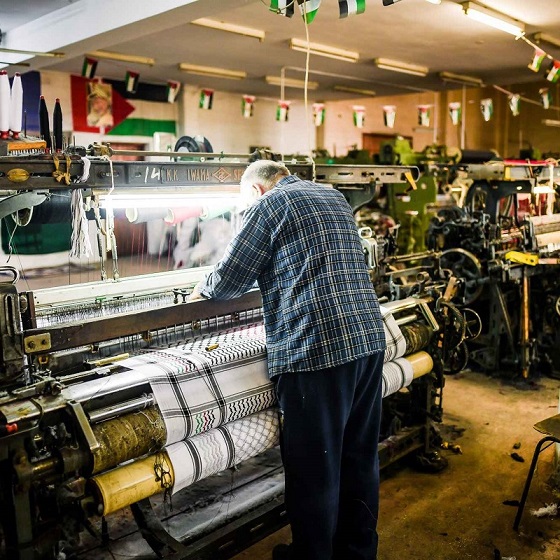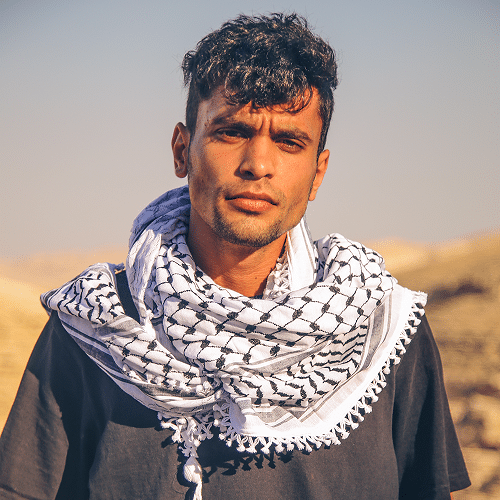We intereviewed several Palestinian Women on their experiences living in Palestine. Told in three gripping stories, Hind, Yasmine and Noor tell capture the essence of what it means to be under an apartheid occupation, and in a constant struggle to keep hold of their self identity…
“Whenever I leave Palestine, the one thing I always take with me is a kufiya.” – Hind Al Kassis, from Beit Sahour
A story by Hind Al-Kassis
I study Economics & Finance at Al Quds Bard College. I studied in the US for a year, and I’d like to go to Europe too, just to learn more. But then I think I’ll come back to Palestine. I want to have the knowledge to be able to help my family and my home.
In Palestine, your neighbours help you without even knowing who you are… they just help you. It’s like that everywhere in Palestine. We’re raised to help each other. Especially after what we’ve been through.
Lately there were protests all over the West Bank because of what was happening in Gaza. There was one near my house too. I live right in front of an Israeli settlement on the hill nearby. It’s so close and it grows every year, in just a few years I think it will be right across the street. It’s crazy how close they build to us!
We can’t go to the settlement because the road is blocked off by a fence. Only the Israeli military are allowed to use it. It’s only for them.
Last week there was a group of Palestinians demonstrating nearby. A group of the guys put on their kufiyas, and came to throw rocks at the road, just to let out their anger. They weren’t bothering anyone, the road was empty and they can’t even get close because the fence is electric. But then the Israeli soldiers came, and they started shooting gas bombs at them. The gas reached my house and I couldn’t breathe.
Palestinians wear the Kufiya because it’s our culture. It’s how we tell people that “We Are Palestinians”. So whenever I leave Palestine, the one thing I always take with me is a kufiya.
I actually brought kufiyas to the US with me and gave them to my friends as gifts. It’s something they can actually use. It’s fashionable. People use it as a headdress, or a scarf, or swimming outfit. It’s amazing. But it’s also more than that.
I love it when I see my friends abroad wear the kufiya because it means that they care about where I come from, my culture, my home.
“My name is Yasmine, and I have nothing to prove it. No passport. No ID. Nothing.” – Yasmine Awad, from Jerusalem
A story by Yasmine
My Palestinian father is from Jerusalem and my Palestinian mother is from the West Bank. My father and two siblings were born in Jerusalem, so they were given Jerusalem ID Cards. But due to complications at birth, my mom was in Bethlehem on the day I was born.
All Palestinian IDs are approved by the Israeli Ministry. They issued me an ID number when I was born and said I would receive an official Jerusalem ID Card once I was 16.
When I turned 16, I planned to travel to Switzerland with my school’s Dabke (dance) group, and I found out that I couldn’t go, because my ID had been revoked.
Today, Israel imposes increasingly restrictive procedures for the registration of Palestinian children in Jerusalem. A child born to Palestinian parents where only one parent is a resident of East Jerusalem does not receive an ID number at the hospital like other children.
Revocation of Palestinian residency rights is pursued for the unjust aim of limiting the ratio of Palestinians to no more than 30% of the population of the city. The ‘demographic balance’ of Jerusalem is designed to expand the Jewish majority while undermining its Palestinian inhabitants.
My parents continue to spend all their savings on lawyers fighting for my citizenship, for a normal life.
Anything you need ID to do, I can’t do. I can’t get a driving license, own a house, travel abroad with my family or friends. I can’t have a bank account or get health insurance. I can’t even think about having children, because without my citizenship my kids would end up stateless, like me.
Yasmine has been stuck in her hometown for 25 years. She has no citizenship and is denied many basic human rights.
“Anybody there? Do you see me? I exist! I just need a passport.”
“My parents and I can’t imagine ever leaving Palestine.”
– Noor Hodaly, from Beit Jala
A story by Noor Hodaly
All my ancestors come from Beit Jala. But for a while, my parents and I lived abroad.
My father Elias was young when he moved to Kuwait for work. He would revisit every so often, and in 1971 he married my mother Rose. They had six children. For 20 years we all lived a quiet, happy life in Kuwait. But we never forgot Palestine.
When the Gulf War started, we left Kuwait and moved back to Beit Jala. My siblings went to study, in America, in Europe, and chose to live there. But my parents chose to stay in Palestine. Until today they refuse to leave, even for a holiday.
My mother says “I spent 20 years of my life away from home. I’m not leaving now. Who would take care of our land if your father and I go?”
My parents spend their days on our farm in Al-Makhrur, a small area outside Beit Jala. The land used to be completely dead and desolate, but when my father moved back, he poured his time and savings into the farm, planting olive trees, apricots, zucchini, aubergines, tomatoes…
In the distance we see Israeli settlers working. They built a highway near us and are gradually confiscating land from some of our neighbours. They don’t inform us of what they’re up to. They just bring their bulldozers and start digging. If they took the farm, it would be a disaster.
Our farm means everything to my father. Even when he’s tired, he still gets up, has coffee with my mom, and then shouts “Yala take me to the farm!”. We drive him there in the early morning. He stays until the afternoon.
Sometimes my brother and I help him. We’re attached to the farm, like we’re attached to this land.
It’s funny, everytime I tell people that I have siblings living in Mexico, USA, Belgium… they always ask me, “so what are you still doing here?”
I tell them, “Here suits me”, my parents and I can’t imagine ever leaving Palestine. We feel we belong here, even if we live this hard life. It’s not easy… I know it’s not easy.
But it’s home.
Many thanks to the women who contributed to this blog. You inspire us all.
